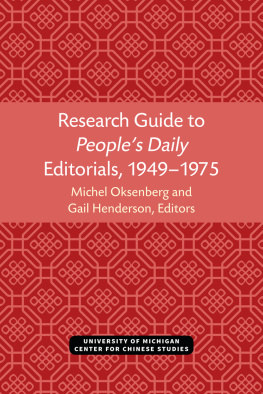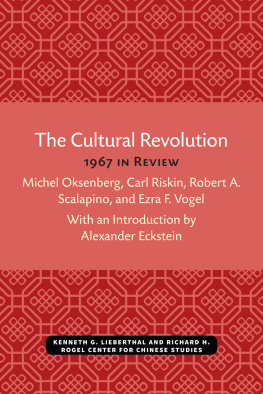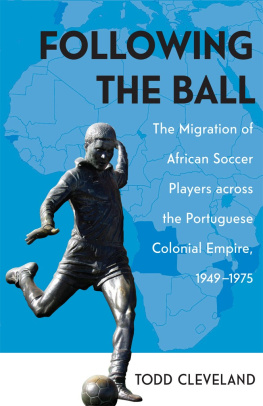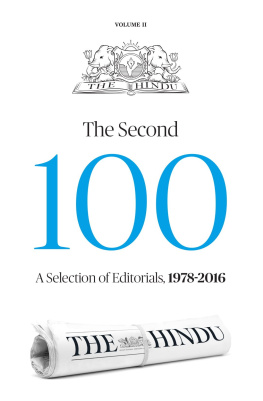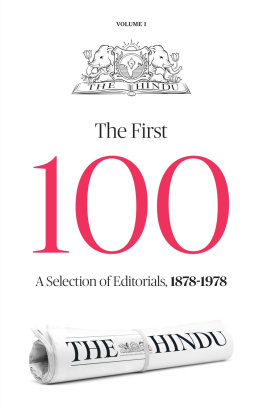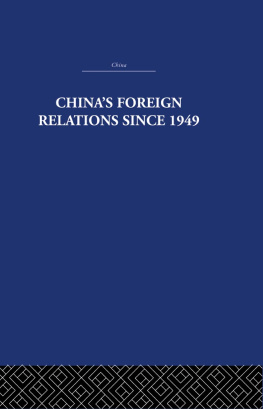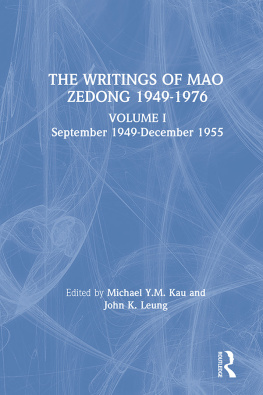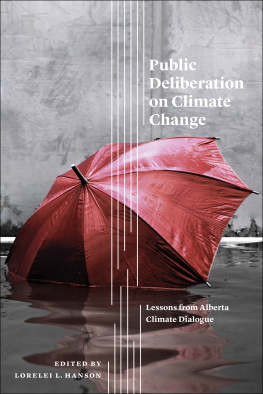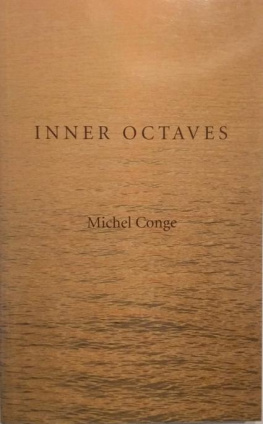Michel Oksenberg - Research Guide to People’s Daily Editorials, 1949–1975
Here you can read online Michel Oksenberg - Research Guide to People’s Daily Editorials, 1949–1975 full text of the book (entire story) in english for free. Download pdf and epub, get meaning, cover and reviews about this ebook. year: 2020, publisher: Kenneth G. Lieberthal and Richard H. Rogel Center for Chinese Studies, genre: Politics. Description of the work, (preface) as well as reviews are available. Best literature library LitArk.com created for fans of good reading and offers a wide selection of genres:
Romance novel
Science fiction
Adventure
Detective
Science
History
Home and family
Prose
Art
Politics
Computer
Non-fiction
Religion
Business
Children
Humor
Choose a favorite category and find really read worthwhile books. Enjoy immersion in the world of imagination, feel the emotions of the characters or learn something new for yourself, make an fascinating discovery.
- Book:Research Guide to People’s Daily Editorials, 1949–1975
- Author:
- Publisher:Kenneth G. Lieberthal and Richard H. Rogel Center for Chinese Studies
- Genre:
- Year:2020
- Rating:4 / 5
- Favourites:Add to favourites
- Your mark:
- 80
- 1
- 2
- 3
- 4
- 5
Research Guide to People’s Daily Editorials, 1949–1975: summary, description and annotation
We offer to read an annotation, description, summary or preface (depends on what the author of the book "Research Guide to People’s Daily Editorials, 1949–1975" wrote himself). If you haven't found the necessary information about the book — write in the comments, we will try to find it.
Research Guide to People’s Daily Editorials, 1949–1975 — read online for free the complete book (whole text) full work
Below is the text of the book, divided by pages. System saving the place of the last page read, allows you to conveniently read the book "Research Guide to People’s Daily Editorials, 1949–1975" online for free, without having to search again every time where you left off. Put a bookmark, and you can go to the page where you finished reading at any time.
Font size:
Interval:
Bookmark:

CENTER FOR CHINESE STUDIES RESEARCH GUIDE TO PEOPLES DAILY EDITORIALS, 19491975 by
Michel Oksenberg
and Gail Henderson Ann Arbor Center for Chinese Studies The University of Michigan 1982 Open access edition funded by the National Endowment for the Humanities/Andrew W. Mellon Foundation Humanities Open Book Program. Copyright 1982 by Center for Chinese Studies The University of Michigan Library of Congress Cataloging in Publication Data Oksenberg, Michel, 1938 Research guide to Peoples daily editorials, 19491975. Includes bibliographical references. 1. Jen min jih paoIndexes. I.
Henderson, Gail, 1949 . II. University of Michigan. Center for Chinese Studies. III. IV. Title. Title.
AI21.J45 Suppl. 079.51 824408 ISBN 0-89264-949-6 AACR2 Printed in the United States of America ISBN 978-0-89264-949-5 (paper)
ISBN 978-0-472-12783-2 (ebook)
ISBN 978-0-472-90179-1 (open access) The text of this book is licensed under a Creative Commons Attribution-NonCommercial-NoDerivatives 4.0 International License: https://creativecommons.org/licenses/by-nc-nd/4.0/ CONTENTS , by Michel Oksenberg and Gail Henderson A reference book of this kind is rarely the product of one persons labor. Work on the Research Guide began in 1974. Since that time, many people have been involved in the various stages of research. James Reardon-Anderson organized the initial team. Under his supervision, Sybil Aldridge, Tom Gottschang, Tony Kane, Ted Levine, and Tony Shaheen spent long hours looking through the volumes of Survey of the China Mainland Press for translated editorials.
Dorothy Perng carefully created each editorial reference card. James Tong translated titles into English when they did not appear in the translation series. Mark Wolf did much of the actual subject indexing. Chan Wah-kong and Dan Benski laboriously checked columns of numbers during the final stage of manuscript preparation. Tim Christensen gallantly typed the entire manuscript with great patience, humor, and skill. India Bateman and Marla Camp provided administrative assistance.
The project was funded by the Bureau of Intelligence and Research of the Department of State. We are thankful to the Department of State for its sponsorship, and we alone bear all responsibility for shortcomings in the project. Michel Oksenberg
Gail Henderson
Ann Arbor, December 1981 Michel Oksenberg and Gail Henderson In recent years, scholars have compiled a number of valuable English-language research aids to facilitate use of primary sources on contemporary China. Principal among these are Kenneth Lieberthals Research Guide to Central Meetings in China, John Starrs Post-Liberation Works of Mao Zedong, John Emerson, et al., The Provinces of the Peoples Republic of China: A Political and Economic Bibliography, and T. T. Hsias Guide to Selected Legal Sources of Mainland China.
These works provide quick access to the key, high-level decision meetings in China since 1949, all known post-1949 statements of Mao Zedong, available provincial budgets, economic development plans, political assessments, and major normative enactments. The present guide to Peoples Daily editorials from 1949 to 1975 now joins this list. Its purpose is to provide researchers with an easy-to-use aid to this crucial series of policy statements. Arranged chronologically and with an extensive subject index, the Research Guide provides access to the only continuous source from China which illuminates high-level policy. This preface provides information on how to use the Research Guide. Significance of Peoples Daily Editorials The Peoples Daily (Renmin ribao) is the daily organ of the Central Committee of the Chinese Communist Party. Significance of Peoples Daily Editorials The Peoples Daily (Renmin ribao) is the daily organ of the Central Committee of the Chinese Communist Party.
As such, it is the equivalent of Pravda in the Soviet Union, that is, the daily publication in the country which speaks for the government and the party. Franklin Houn correctly notes that unlike the Soviet government with its daily, Izvestia, the Chinese government apparatus does not publish its own daily paper, and thus the Peoples Daily in China plays a role analogous to both Pravda and Izvestia in the U.S.S.R. The newspaper is Chinas national daily, printed on the same day in printing plants throughout China. Its circulation is enormous, totalling as of 1980 nearly eight million daily copies. Moreover, each copy has a high readership, circulating within the many production or residential units which receive copies and being displayed prominently on busy street corners and in entryways. The general public is well aware that the Peoples Daily reflects the latest thinking of the top leadership.
For much of Maos era in particular, not only officials, but the attentive public avidly studied the Peoples Daily to acquire a sense of impending policy shifts that would require changes in personal conduct and utterances. And within this already authoritative publication, the editorial assumed special importance. In degree of authoritativeness, it ranks just below directives, Party resolutions, and, especially from 1965 to 1976, the statements of Chairman Mao himself. The conclusion is unmistakable: the editorials are a major means, at times the major means, by which the top leadership can communicate its policies directly to the population. Any effort to trace the evolution of a particular policy in China or to analyze a particular time span requires extensive familiarity with the pertinent Peoples Daily editorials. The Writing of Editorials The Peoples Daily staff includes a section (ke) in charge of editorials.
Given the significance of editorials, however, it should not be surprising that the editorials writers, in spite of their ideological or political astuteness, do not have the final word on topic selection or text approval. To be sure, some editorials originate within the section itself. The editorial writers have access to inner-Party directives and are aware of Politburo, Secretariat, and work-conference deliberations, and their experience frequently dictates what topics are worthy of editorial treatment. But inspiration for editorials can come from outside the editorial section as well. One important source is the editor-in-chief of the newspaper. Those who have held this post have never been members of either the Politburo or the Secretariat, but they have generally had significant access to the highest-level policy deliberations.
Both the editor-in-chief and the head of the New China News Agency have been known to attend Politburo meetings and have been made well aware of the concerns of the top leaders. A second source of editorials is the top leadership itself. Mao Zedong, Liu Shaoqi, and Zhang Chunqiao, for example, are all known to have recommended and supervised the drafting of specific editorials at different times. A third source is inner-Party reports to the top leadership which the leaders recommend be turned into editorials. For example, Mao Zedong once thought particularly well of a summary by the Minister of Education concerning the proceedings of a national education conference and instructed that the report be prepared as a Peoples Daily editorial. After an editorial has been drafted, it sometimes circulates among Politburo members for commentary before publication.
A number of editorials are known to have been submitted to Mao, Zhou Enlai, Yao Wenyuan, and others for commentary and guidance. It seems that only editorials dealing with particularly sensitive issues require approval by the top levels, but it remains unclear who decides whether an editorial requires top clearance.
Font size:
Interval:
Bookmark:
Similar books «Research Guide to People’s Daily Editorials, 1949–1975»
Look at similar books to Research Guide to People’s Daily Editorials, 1949–1975. We have selected literature similar in name and meaning in the hope of providing readers with more options to find new, interesting, not yet read works.
Discussion, reviews of the book Research Guide to People’s Daily Editorials, 1949–1975 and just readers' own opinions. Leave your comments, write what you think about the work, its meaning or the main characters. Specify what exactly you liked and what you didn't like, and why you think so.

